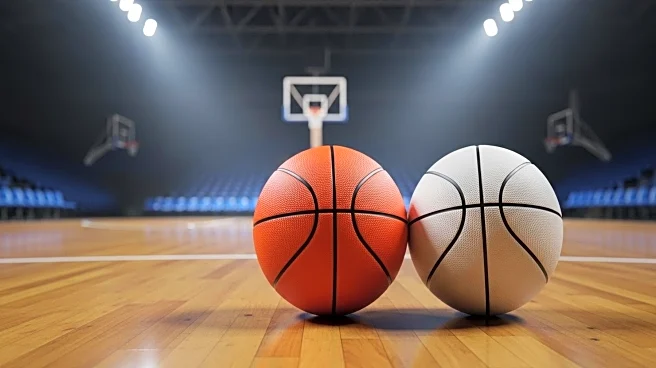What is the story about?
What's Happening?
As the 2025 WNBA playoffs commence, players are not only competing for a championship but also negotiating a new collective bargaining agreement (CBA). This season's negotiations are particularly significant due to rising viewership, attendance, and sponsorship deals. The league has expanded its playoff structure to a best-of-seven Finals, and there is potential for a work stoppage as the league approaches its 30th anniversary. Key players like Caitlin Clark and Paige Bueckers are absent due to injuries, but the playoffs still feature prominent stars such as Napheesa Collier and A'ja Wilson. The players are advocating for better salary and revenue-sharing structures, while the league aims to balance increased player benefits with profitability.
Why It's Important?
The outcome of these negotiations could significantly impact the future of the WNBA. With the league experiencing growth in media rights and expansion fees, players are pushing for a fair share of the revenue. A successful agreement could set a precedent for labor relations in women's sports, while a work stoppage could hinder the league's growth trajectory. The negotiations also highlight the broader issue of gender equity in professional sports, as players seek to ensure their contributions are adequately compensated.
What's Next?
The deadline for reaching a new CBA is October 31, and both the league and players' union are working to avoid a work stoppage. The playoffs provide a platform for players to demonstrate their value and strengthen their bargaining position. The league's leadership has expressed a desire to reach an agreement without long-term conflict, but the negotiations will likely continue to be a focal point as the season progresses.
Beyond the Headlines
The negotiations underscore the ongoing struggle for gender equity in sports, as WNBA players seek to secure better financial terms and labor protections. The league's growth presents an opportunity to address these issues, but it also highlights the challenges of balancing player demands with business interests. The outcome could influence future negotiations in other women's sports leagues.














